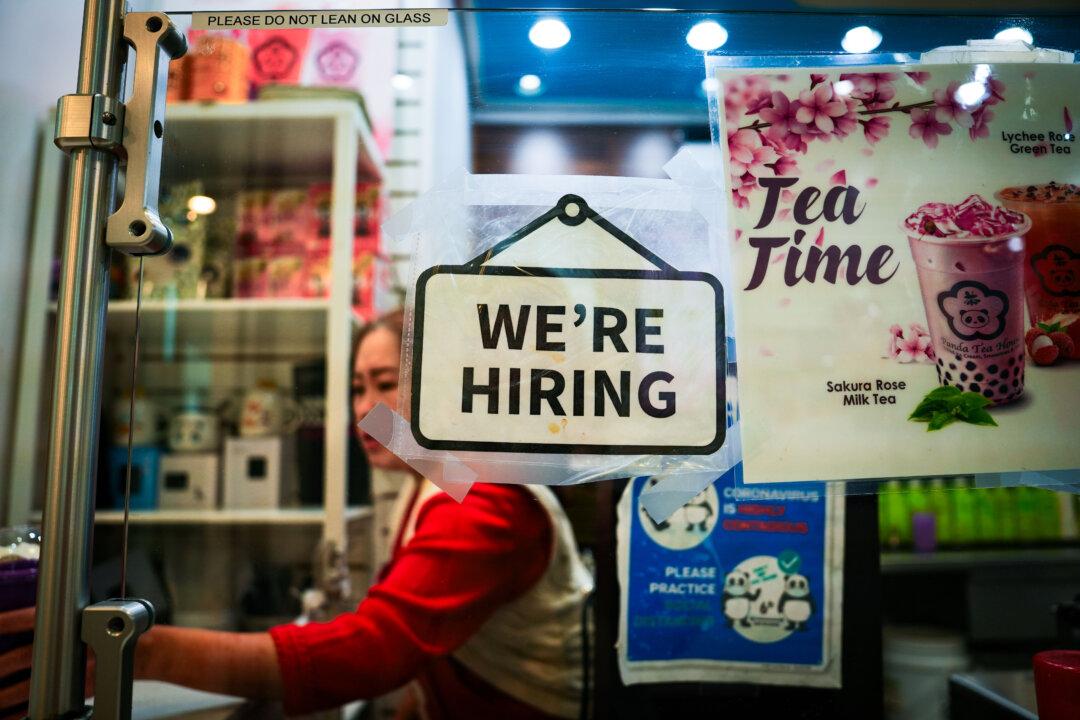The stock valuations of U.S. technology firms have risen to their highest level since the dot-com bubble of the late 1990s, driven by investor interest in artificial intelligence (AI) technologies, wealth management firm Bernstein is warning.
The stock prices of tech companies rose by 38 percent in the first half of 2023, which is the best performance during the January–June period in more than two decades, analysts at Bernstein said in a recent client note.
“Tech is now trading at a 54 percent premium to the market, its highest level in 45 years other than the dot-com bubble, and well above its historical average premium of 26 percent.”
Because of the extremely high valuations, analysts didn’t recommend investors to have an overweight position in the stocks. However, they conceded in the note that it was “tough to be underweight” on such stocks, since the sector’s rally is being driven by “powerful AI momentum” and other factors.
Investor interest in AI technologies has pushed up the stocks of major U.S. tech companies. According to an analysis by Business Insider, the seven biggest U.S.-listed tech firms have seen a 60 percent growth in their combined market capitalization this year, raising it by $4.1 trillion, to $11 trillion.
Apple, Alphabet, Amazon, Meta, Microsoft, Nvidia, and Tesla have contributed greatly to the gains of the S&P 500 Index this year, pushing the index into a bull market, as it rose by 16 percent in the first half.
The high valuations are making selecting tech stocks for investment a tough prospect, according to Bernstein analysts.
Continuing Rally or Crash in 2023?
Opinions are split as to whether the AI-fueled tech rally will continue for the remainder of the year and into next year or will fizzle out and end up in a crash.In an investment note late last month, Dan Ives, an analyst at Wedbush wealth management, pointed out that the sentiment on tech stocks was “extremely negative” at the beginning of 2023 due to factors such as concern about the economic environment and the Federal Reserve’s continuous interest-rate increases.
Dispelling all these concerns, the tech stocks moved in the opposite direction. Mr. Ives attributes that trend to AI, which has “changed the tech world and investor sentiment,” according to Barron’s. The analyst believes that tech stocks can go up even more “as investors further digest the ramifications of this $800 billion AI spending wave on the horizon.”
For the second half of the year, he’s expecting a rally in the stock market, with software stocks contributing to it.
“While bears will continue to fret about tech valuations and the uncertain macro backdrop, we believe this ultimately is the start of a new tech bull market we see heading into 2024 being driven by this AI revolution, coupled with a stabilizing IT [information technology] spending environment,” Mr. Ives said.
Some investors are concerned by the overvaluation in tech stocks, since any sign of a recession or economic trouble could lead to a massive sell-off and crash in their valuations.
In an interview with Bloomberg, Jonathan Stubbs from the investment bank Berenberg warned that U.S. stock market investors may require “crash protection” in the second half of 2023.
The Federal Reserve is another factor. David Lebovitz at JPMorgan Asset Management pointed out that the central bank will require a recession to bring inflation down to its desired levels. Inflation is currently at 4 percent, which is double the Fed’s target rate of 2 percent. The rate has been above 4 percent since April 2021.
Investors have to be prepared for the Fed “not blinking until the labor market deteriorates in a way that they can no longer ignore it,” he said. This would mean a tough economic environment—which is bad news for stock prices.





